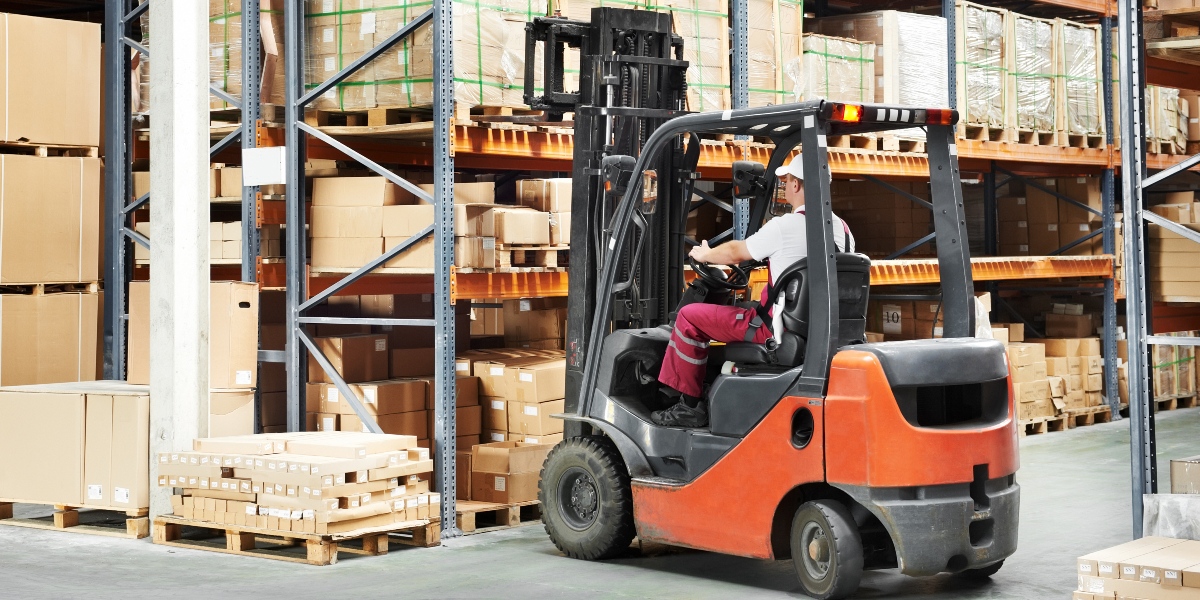Top Skills Every Forklift Operator Should Master
The Importance of Forklift Operators in Warehousing and Logistics
People can’t move the amount of goods required to meet demand as quickly as forklifts. When you’re in these environments, you will soon see that forklifts are the backbone of material handling in warehouses, distribution centers, and manufacturing facilities. From unloading trucks to moving pallets, forklift operators ensure that goods are handled efficiently and safely. Without skilled operators, the logistics chain would face significant disruptions that would surely impact the entire supply chain. However, operating a forklift without proper training and certification can pose some serious risks, including workplace accidents, product damage, and lost time. Because of this, you can clearly see why skilled forklift operators are in high demand, and ensuring responsible operation is crucial to keeping things running smoothly.
Essential Forklift Operator Skills for Success
Proven Experience and Certification
Proven experience and certification are the foundation of a successful career as a forklift operator. OSHA guidelines require operators to complete proper training, ensuring they understand safe operation procedures and the specific equipment they'll be using. A certified forklift operator not only demonstrates expertise but also assures employers that safety standards are met.
OSHA’s training requirements are laid out to ensure that forklift operators are well-trained and can operate safely in the workplace. Here's a quick summary of what's required:
● Training Program: Employers must develop a program covering safe truck operation, the types of forklifts used, workplace hazards, and OSHA safety standards.
● Formal & Practical Training: Training includes both formal instruction (lectures, videos, and similar teaching methods) and practical exercises (demonstrations and/or hands-on practice).
● Certification: Employers need to certify that each operator has been trained and evaluated. Operators should be evaluated at least once every three years to keep up with OSHA certification requirements.
● Initial Training Topics:
○ Operating instructions and warnings for specific forklifts.
○ Differences between forklifts and automobiles.
○ Controls, instrumentation, engine operation, steering, visibility, and capacity.
○ Fork and attachment use, vehicle inspection, maintenance, and refueling procedures.
○ Operating limitations and conditions.
● Workplace-Specific Training:
○ Surface conditions and load stability.
○ Pedestrian traffic, narrow aisles, hazardous locations, ramps, and ventilation concerns.
○ Any unique environmental hazards.
● Supervision of Trainees: Trainees can only operate forklifts under the supervision of a qualified trainer and in safe conditions.
● Refresher Training would be required in the following situations:
○ An operator has been observed operating unsafely.
○ The operator was involved in an accident or near-miss.
○ Evaluations show unsafe operation.
○ The operator is assigned a different type of truck or if the workplace conditions change.
Equipment Operation and Maintenance
A skilled forklift operator must be able to operate a variety of forklifts, such as counterbalance trucks, reach forklifts and pallet jacks. Additionally, performing regular equipment checks, identifying potential repairs and keeping machines in top working condition are essential for minimizing downtime and preventing accidents. Routine maintenance is crucial for both the safety and longevity of the machinery.
Load Handling and Inventory Management
Knowing how to handle loads properly is a vital forklift operator skill. Operators must be proficient in loading, unloading and stacking materials without causing damage. Efficient inventory management also comes into play — forklift operators are often tasked with maintaining accurate logs of goods moved and ensuring that inventory records are kept up to date, which is critical for keeping operations running smoothly.
Soft Skills Every Forklift Operator Needs
Attention to Detail
Attention to detail is key when handling valuable goods. Forklift operators must inspect items for damage, report shortages, and ensure the accuracy of their work. This skill is especially important in preventing costly mistakes and maintaining the quality of operations.
Communication and Teamwork
Forklift operators rarely work in isolation. They must communicate effectively with co-workers, supervisors, and other team members. Good teamwork helps coordinate material handling tasks, improving efficiency and reducing the risk of accidents in busy warehouse environments.
Safety and Compliance
Safety should always be a top priority. Forklift operators must adhere to company safety policies and OSHA regulations. Ensuring that safety procedures are followed — such as using seat belts, wearing appropriate protective gear and following load limits — helps maintain a secure working environment for everyone.
How to Start Your Career as a Forklift Operator
To start a career as a forklift operator, you must meet a few basic requirements. Typically, you need to be at least 18 years old, possess a high school diploma, and have some experience working in environments where forklifts are used. Completing OSHA-approved forklift operator training is a must, as this certification proves that you’re equipped with the knowledge to operate forklifts safely and legally. However, potential employers may require specific training on how their environment operates and may include this training during onboarding.
Once certified, career advancement opportunities include moving into supervisory roles or becoming a forklift instructor, giving you more responsibility and higher earning potential.
Aerotek’s Role in Supporting Forklift Operator Careers
Aerotek is available to support forklift operators in finding job opportunities that match their experience and skills. In specializing in and partnering with employers across various industries, such as distribution & supply chains, Aerotek connects qualified operators with positions that suit their expertise.
Building a Successful Career with the Right Forklift Operator Skills
Mastering the skills of a forklift operator — such as load handling, equipment maintenance and safety protocols — will set you up for long-term success. These skills, combined with the proper certification, open opportunities for higher-paying jobs and career advancement.
If you’re ready to build a rewarding career as a forklift operator, don’t hesitate to pursue certification and enhance your skill set. Explore current forklift operator jobs through Aerotek’s job board and take the next step toward a successful future in this in-demand field.
